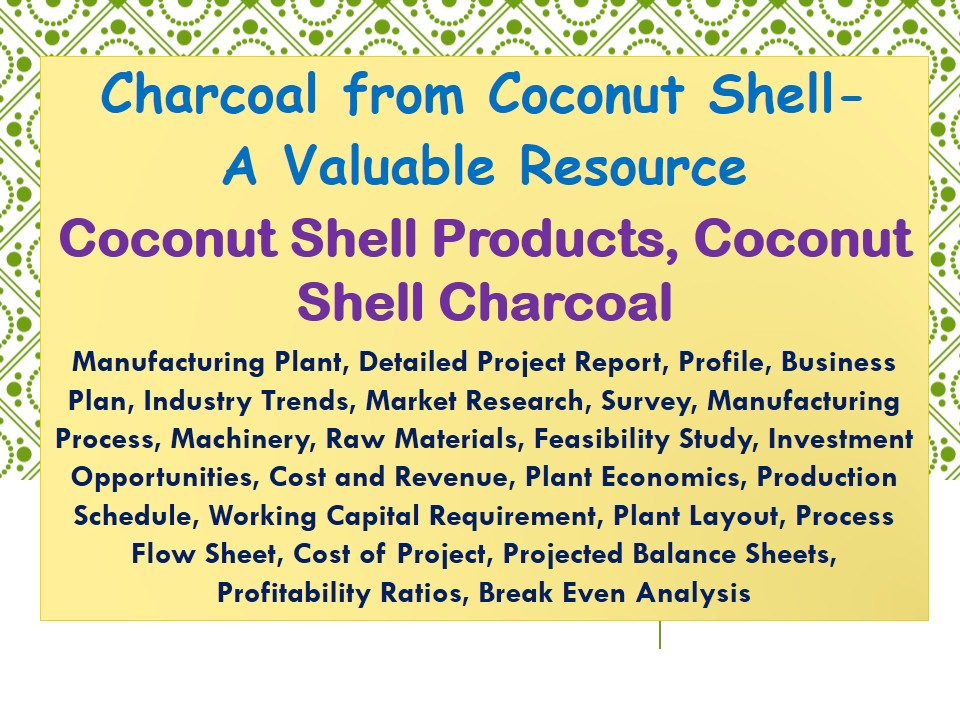
Charcoal has long been used as a fuel and industrial raw material. In recent years, its demand has increased due to the growing need for eco-friendly energy sources. Among the different types of charcoal, charcoal from coconut shell is considered superior because of its high carbon content, purity, and longer burning time. This makes it an excellent choice for industries such as metallurgy, chemical processing, and water purification. Furthermore, its sustainable nature provides entrepreneurs with a lucrative and eco-conscious business opportunity.
Why Charcoal from Coconut Shell is a Preferred Choice
Coconut shells are an agricultural waste product generated in massive quantities, especially in tropical countries. Instead of being discarded or burned, these shells can be transformed into valuable charcoal. Not only does this process reduce waste, but it also creates an alternative source of income for farmers and entrepreneurs. Additionally, because the shells are renewable, using them contributes to environmental sustainability.
See Also : Stationery Business
Abundant Raw Material Availability
Coconut-producing countries like India, Indonesia, the Philippines, Sri Lanka, and Thailand generate millions of tons of coconut shells annually. These are often underutilized or disposed of inefficiently. By setting up a plant that converts these shells into charcoal, entrepreneurs can tap into a cost-effective and easily accessible raw material. Moreover, sourcing the shells locally reduces transportation costs and supports the surrounding farming community.
Properties and Benefits of Coconut Shell Charcoal
Charcoal from coconut shell is known for its high calorific value, low ash content, and smokeless combustion. Due to these properties, it finds extensive use in barbeque grills, tandoors, incense sticks, air and water purification systems, and even in metallurgy. Furthermore, it burns cleaner than wood charcoal and produces less volatile matter. This makes it not only efficient but also less harmful to the environment.
The superior characteristics of coconut shell charcoal have made it increasingly popular in both domestic and international markets. Therefore, many small and medium-sized enterprises are now venturing into this space. With proper planning and execution, this business can yield attractive returns.
Manufacturing Process Overview
The production of charcoal from coconut shell involves carbonization, during which shells are converted into charcoal by heating them in the absence of oxygen. The process generally follows the below steps:
-
Drying: Collected coconut shells are first dried to remove moisture.
-
Carbonization: Dried shells are placed in kilns or carbonizing units where they are heated at high temperatures (around 400–700°C) without oxygen. This causes the shells to release gases and turn into charcoal.
-
Cooling: After the carbonization process, the material is allowed to cool in a controlled manner.
-
Crushing and Sieving: The cooled charcoal is crushed into uniform sizes and passed through sieves to ensure consistency.
-
Packaging: Finally, the processed charcoal is packed into moisture-proof bags for sale.
Transitioning from a basic setup to a more automated or continuous carbonization system can greatly improve efficiency and output.
Required Machinery and Infrastructure
To establish a successful charcoal from coconut shell manufacturing unit, the following equipment is essential:
-
Carbonization kiln (traditional or advanced rotary type)
-
Drying equipment
-
Charcoal crusher and sieving system
-
Cooling chamber
-
Packaging unit
A small-scale plant may require only semi-automatic machines, while larger operations might benefit from continuous kilns and conveyor systems. Importantly, the factory should have proper ventilation, storage for raw materials, and access to reliable electricity.
Investment and Operational Costs
Setting up a small unit typically requires an investment ranging from ?10 lakhs to ?25 lakhs, depending on the plant size, machinery, and automation level. This includes the cost of land (if not leased), building, equipment, labor, and working capital.
Recurring costs include coconut shell procurement, electricity, labor wages, packaging, and transport. However, as raw material is inexpensive and widely available, the profit margins are favorable. Entrepreneurs can also reduce costs by sourcing discarded shells directly from coconut oil units or local farms.
Market Demand and Export Potential
The demand for charcoal from coconut shell is growing steadily, especially in international markets like the USA, Europe, and the Middle East. Buyers in these countries prefer eco-friendly and smokeless charcoal products, making coconut shell-based charcoal highly desirable. Additionally, industries that manufacture activated carbon, mosquito coils, and air purifiers rely heavily on this type of charcoal.
To tap into the global market, it is essential to comply with export quality standards and certifications. Offering consistent quality and secure packaging can help build trust and long-term contracts with overseas clients.
Value-Added Opportunities
One can further increase profitability by producing activated carbon from coconut shell charcoal. This involves additional processing and chemical treatment but yields a high-value product. Activated carbon is widely used in:
-
Water purification systems
-
Air filters
-
Gold recovery in mining
-
Pharmaceutical and food industries
Another promising product is charcoal briquettes, which are compressed blocks of powdered charcoal mixed with binders. These are easier to handle, store, and use, especially for household fuel needs.
By diversifying the product range, businesses can cater to different market segments and reduce dependency on a single revenue stream.
Legal Requirements and Environmental Norms
Before starting production, it is necessary to obtain certain registrations and permits, such as:
-
Business registration (Udyam/MSME)
-
GST registration
-
Factory license
-
Pollution control board clearance
Environmental regulations may vary based on location. It is crucial to ensure that the plant meets air quality and emission standards, especially if traditional kilns are used. Alternatively, investing in smokeless carbonization units can reduce pollution and ease compliance.
Furthermore, training staff to handle machinery, waste management, and safety protocols helps maintain operational standards and avoid penalties.
Challenges and Mitigation
While the business model is profitable, it is not without challenges. Common hurdles include:
-
Consistent raw material supply
-
Price fluctuations in export markets
-
Regulatory compliance
-
Skilled labor for machinery operations
To overcome these, entrepreneurs can:
-
Establish tie-ups with coconut farms and oil mills
-
Focus on building a diversified client base
-
Regularly monitor compliance and update licenses
-
Provide training to workers on machine handling and safety
Moreover, staying updated with technology and market trends allows businesses to remain competitive and sustainable.
Sustainability and Environmental Impact
Charcoal from coconut shell offers significant environmental advantages. It reduces reliance on wood-based charcoal, which often involves deforestation. Additionally, converting waste shells into charcoal helps manage agricultural waste effectively.
When manufactured in an eco-friendly manner, this charcoal supports carbon sequestration, promotes circular economy practices, and contributes to the green energy transition. Therefore, investors and entrepreneurs interested in sustainable industries find this venture especially attractive.
See Also : Tomato & Fish Waste
Conclusion
The production of charcoal from coconut shell presents an excellent business opportunity with low raw material costs, growing market demand, and high profit margins. It supports rural development, waste reduction, and clean energy initiatives. With proper planning, compliance, and value addition, this industry can generate consistent income and long-term business success.
Entrepreneurs aiming to enter this field should conduct market research, prepare a detailed project report, and choose the right scale of production based on capital and demand. Overall, charcoal from coconut shell is not only a profitable venture but also a step towards environmental responsibility and sustainable industrial growth.





